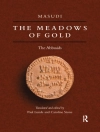In ‘The Common Reader – First Series, ‘ Virginia Woolf presents a collection of essays that illuminate her views on literature and the act of reading. Written with her signature modernist flair, these essays bridge the gap between popular and highbrow literary discourse, exploring works from various authors such as Jane Austen and Charles Dickens. Woolf’s prose is characterized by its introspective depth and lyrical quality, offering readers a nuanced appreciation of the literary landscape. The context of the early 20th century—marked by burgeoning feminist thought and a reevaluation of cultural norms—profoundly influences her reflections on literature’s role in society. Virginia Woolf, a central figure in the modernist movement and a member of the Bloomsbury Group, brought her unique perspectives on gender, art, and society into her writing. Her advocacy for women’s voices in literature, fostered by her own experiences as a groundbreaking female author, informs the insightfulness of ‘The Common Reader.’ Woolf’s keen analytical eye and empathetic understanding of literature’s impact on both individuals and communities further enrich this collection, allowing her to dissect cultural landmarks with remarkable clarity. This collection is highly recommended for readers seeking a deeper appreciation of literature’s cultural significance and its interconnectedness with personal identity. Woolf’s elegant prose and perceptive analyses invite readers to expand their literary horizons, making ‘The Common Reader – First Series’ an essential read for both scholars and casual readers alike.
Over de auteur
Virginia Woolf (1882-1941), born Adeline Virginia Stephen, was an illustrious English writer known for her innovative literary style and contributions to modernist fiction. Woolf was an integral figure in London’s literary and intellectual circles and a member of the Bloomsbury Group. Her narrative technique, characterized by a stream of consciousness and psychological depth, was revolutionary at the time and has left a profound impact on the literary world. In ‘The Common Reader – First Series’ (1925), Woolf compiled a collection of essays that revolutionized literary criticism by advocating for the role of the ‘common reader, ‘ a concept representing an individual reading for pleasure rather than academic analysis. This work reflects her belief in the accessibility of literature and the importance of personal emotional responses to it. Woolf’s oeuvre includes notable works like ‘Mrs. Dalloway’ (1925), ‘To the Lighthouse’ (1927), and ‘Orlando’ (1928), which continue to be widely read and analyzed for their depth and narrative ingenuity. Woolf’s writing is often studied for its exploration of the human psyche, gender roles, and the complexities of time and existence, establishing her as a pivotal figure in the canon of English literature.












